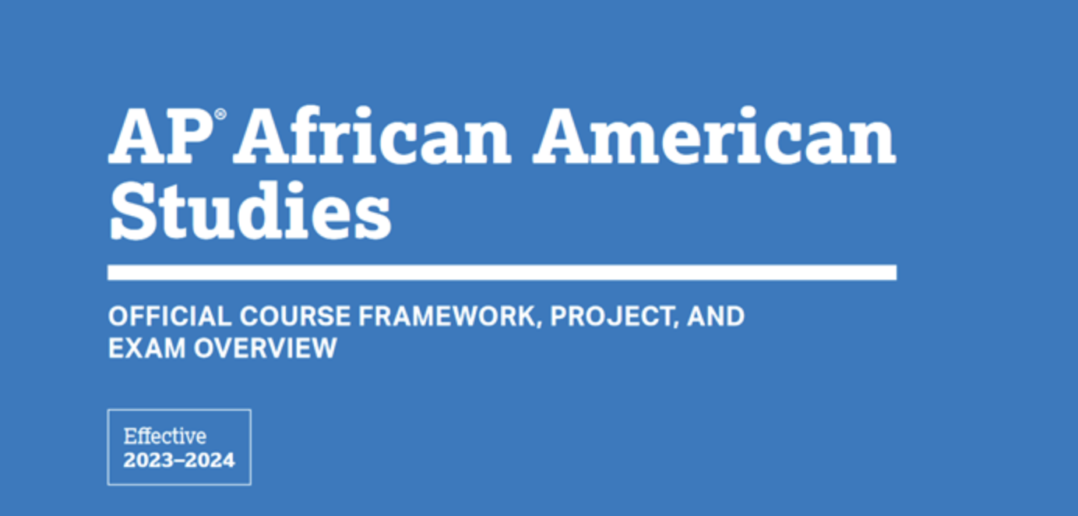By Jenn Arias ’24
ariasjri@lakeforest.edu
Staff Writer
On January 26, the Florida Department of Education rejected a proposal to include Advanced Placement (AP) African American studies into local school curricula.
According to a tweet by Florida Governor Ron Desantis, “education is about the pursuit of truth, not the imposition of ideology or the advancement of a political agenda.”
This drastic act comes only days before the commencement of Black History Month, the only month that celebrates the rich history, literature, and struggle of African Americans.
Becky Pringle, president of the National Education Association, was one of the 28,000 that signed the petition imploring the Department of Education to approve the AP courses, which read, “it’s clear that Fl. Gov. DeSantis has been using Black students as political pawns in his quest to build power and conservative outrage, and the Florida State Board of Education has long enabled him” (According to the NPR story titled, “Critics say Florida aims to rewrite history by rejecting African American studies”).
Advanced Placement courses are designed to challenge and deepen an education, causing students to think critically about matters they may not have otherwise been exposed to. By refusing to teach African American studies, Desantis seems to want to rewrite a more flattering and less brutal history, pointedly omitting the truth.
“Books are portals of discovery, and library books in particular offer an escape from the limitations that can be imposed by a person’s family or socioeconomic circumstances,” said Lake Forest College Professor of English Joshua Corey. “Authoritarians of whatever stripe have always hated and feared books and tried to control them or restrict access to them.”
Today, 19 states ban books, topics, and courses from being taught in publicly funded institutions, which begs the question, is this restriction about content or age?
“The move to censor topics like intersectionality, the movement for Black lives, and reparations is nothing more than an assault on African American history and worldviews—effectively whitesplaining topics that are integral to the development of American history, culture, and identity,” said Ivory Toldson, Director of Education Innovation and Research for the NAACP, and was quoted in an NPR story titled, “Critics say Florida aims to rewrite history by rejecting African American studies.”
Book banning has existed for thousands of years, with the most famous example being The Bible. The first book banned in the United States was Thomas Morton’s New English Canaan in 1637 for its critique of Puritan beliefs and ideals. It seems that this has been a pattern ever since—omitting subjects that challenge mainstream beliefs or show certain people in an unfavorable light.
“I don’t believe in banning books, topics, or courses, particularly those that speak to the experience of historically disadvantaged groups,” Corey said. “Such bans enforce ignorance, and keeping people in ignorance is one of the fundamental tactics of powerful people who wish to avoid being held accountable.”
House Bill 1467, which demands that schoolbooks be age appropriate and adhere to student needs, went into effect last July. Teachers were required to undergo new training, which wasn’t available until January. This left substantial curriculum gaps as teachers were unprepared and unsure of what to purchase.
“I love showing students around the interiors of great literary works, and I love teaching them to explore their own creative potential by falling in love with language,” said Corey, who received his PhD from Cornell before coming to Lake Forest. “I don’t believe in gatekeeping or ‘protecting’ people from literature or ideas.”
What needs to be addressed here, is this censorship? How far does free speech get us? Where do we draw the line between protecting students and hindering their education?
The “Don’t Say Gay” bill further excludes certain groups from access to information because it limits classroom instruction on sexual orientation. Should we allow them to learn about who they really are inside or shall we snuff out this individualistic voice that may change the way people see the future?
Similarly, the “Stay W.O.K.E.” Act “restricts schools from using any texts that refer to privilege, oppression, or the idea that people can be inherently racist, sexist, or oppressive whether consciously or unconsciously” (According to Refinery29.com).
“The Florida ban is a racist provocation on the part of DeSantis and his administration,” Corey said, “designed to score political points from his right-wing base. It hurts all Floridians, and indeed all Americans, by restricting a vital field of intellectual inquiry and demeaning the importance of African American writers, thinkers, and leaders.”
There are certainly extreme cases in which graphic descriptions warrant an age requirement, but why are schools making the call? Shouldn’t parents decide what is right for their own children? Who is really raising these kids?
In the aftermath of the rejection of AP African American studies, which Corey calls out as a “racist attack on the dignity of Black Americans,” the College Board released a revised version of the course Feb 1 using “the contributions of experts, teachers, and students” (According to the npr.org story titled, “Critics say Florida aims to rewrite history by rejecting African American studies”). Some feel this is their only course of action, while others advocate fighting on for the freedom of learning that is a right not a privilege.
“The consequences of denying the profound historic and systemic roots of racism and sexism are far more dire than the momentary discomfort of those to whom these ideas might be new,” Corey said.This is
For the meantime, Desantis seems cemented in his fantasy world that claims people cannot possibly be bad, even unconsciously. However, we cannot simply deny the truths of the past, turning our backs on the sufferings of millions of people, just because it’s not the prettiest picture.
“[Desantis and others] wish to take us backward to a time when white privilege and male supremacy were unquestioned, when queer people had to stay in the closet and people of color ‘knew their place,’” said Corey. “We can’t go back there by acceding to these specious and disingenuous arguments.”
Educators are doing their best to work around these intense restrictions, attempting to provide their students with the most inclusive education while working with their hands tied. Florida, amongst other states, seems to have reverted in time, shamefully denying the blight of African Americans and boldly claiming that people could have never felt that way. They are systematically snuffing out the critical historical voices of diversity that make this country the rich melting pot that it is.
The Statue of Liberty’s motto is “Liberty, Equality, Fraternity,” but we have apparently started to shut the doors on the Land of the Free. No longer do we welcome refugees; no longer do we allow people to practice their own beliefs unmolested. We erase their pain, we cancel out their history and rewrite it with our own agenda. It may have started with banning our books, but it’s ending with our freedom of liberty.
They say those who won’t learn history are doomed to repeat it. I can only shudder to think what is coming next.


